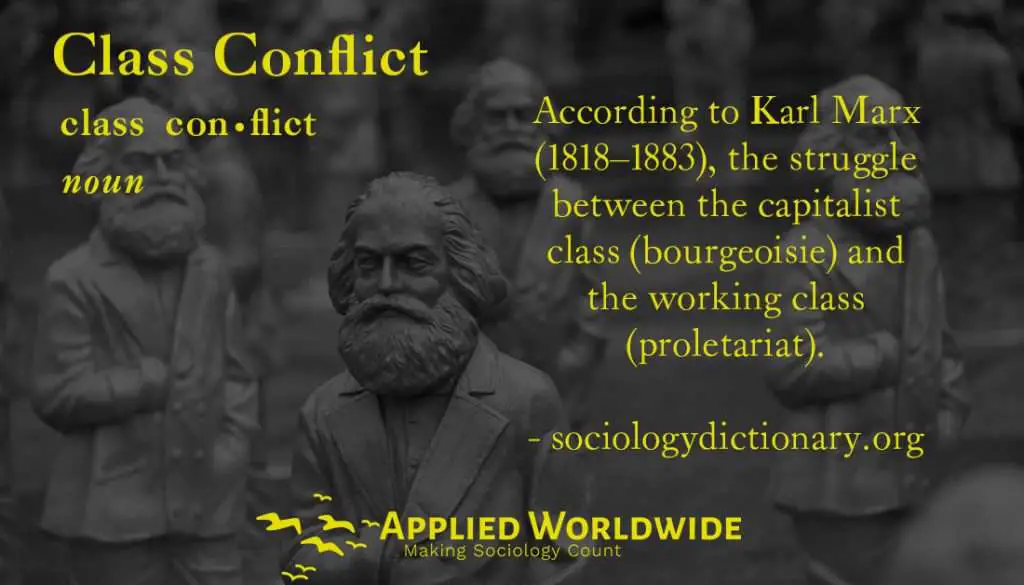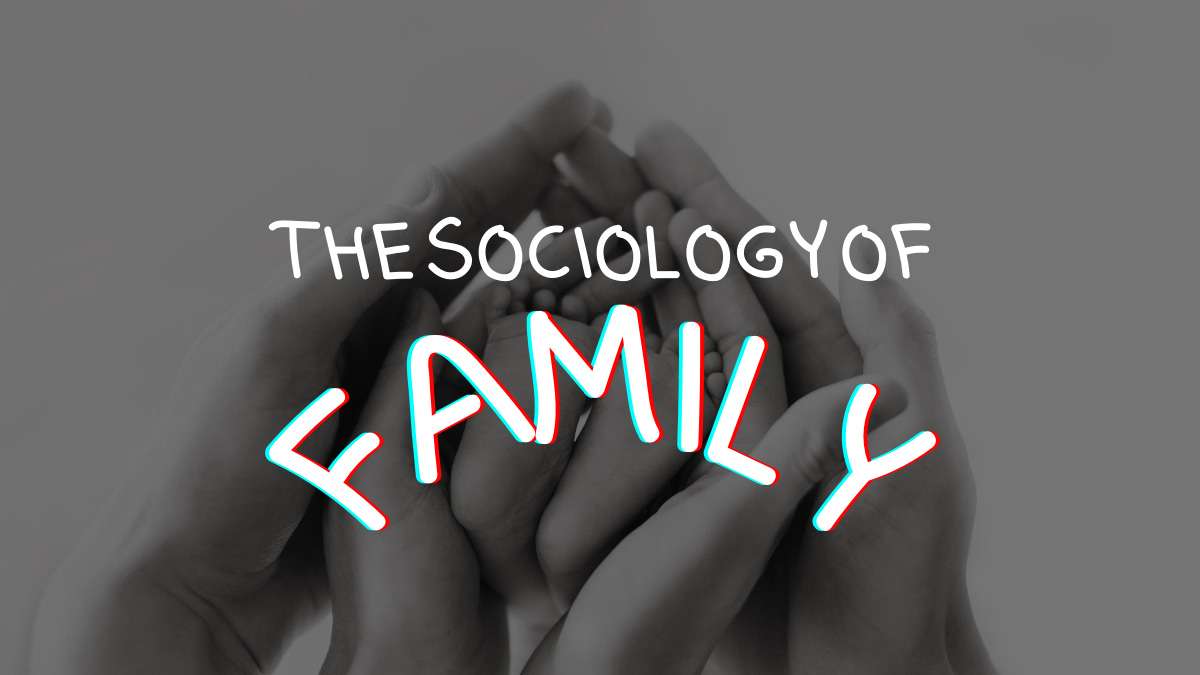The sociology of family can be conceived as the application of various sociological perspectives to the institution of family as an agent of socialization. Each family is a basic unit of the society it exists within, and each, fundamentally begins the socialization process. Families innocently teach both the ways life and modes of human society to a children, and they carry those lessons with them through life.
Family members are the earliest individuals a child has contact with, making them hugely influential in the socialization process. Later on, however, children go on to learn other perspectives on life and society through other social institutions, such as education.
Theoretical Perspectives on the Sociology of Family
Several sociological perspectives are used to empirically discuss family as a subject matter within the discipline of sociology. Of the many perspectives, this article will cover the following:
- The functionalist perspective,
- The conflict theory perspective,
- The symbolic interactionist perspective, and
- Feminist perspectives.
A Functionalist Perspective on Family
The family, either nuclear or extended, is the smallest unit of the society. It provides functions such as socialization, regulation of sexual behavior or affection, companionship, protection and the provision of social status, as outlined by American Sociologist, William Fielding Ogburn.
The functionalist perspective clearly insists that family, through its diverse functions, is a principal contributor to social stability. Family, it posits, functions to maintain stability, while also fulfilling the needs of its members. As a part of reproduction, the act of begetting offspring has created the continuity of human existence. Reproduction is one example of the social function of the family. Another example is protection.
In terms of protection against outside forces, families keep members safe, adequately overseeing the upbringing of children from harm. Children who are not safeguarded by a family unit may be more easily corrupted. Overall, as a macro-level perspective. functionalism is focused on the role of the family in helping society function properly.
A Conflict Theory Perspective on Family
The conflict theory perspective in sociology lays emphasis on political inequality, social inequality or material inequality both between and within families as a social groups. This perspective is another macro-level analysis of society which draws attention to class conflict. German philosopher Karl Marx is regarded as the founder of this sociological perspective.

Conflict theory sees the social institution of family as a perpetuator of inequality and conflict. It sees the family chiefly as a means that creates inequality through uneven distribution and acquisition of wealth. This sociological perspective views family as a microcosm of the inequality in wealth and power that is largely found within the mainstream society. In other words, the family contributes to social injustice through the the transfer of wealth, power, and status from one generation to another.
Conflict theorists argue and hold the opinion that family is a tool for maintaining varieties of societal inequality. This perspective, overall, seemingly believes the family is often not a haven, but rather an arena where power struggle occurs.
An Symbolic Interactionist Perspective on Family
The symbolic interactionist perspective is a micro-level theory interested in the interaction of individuals. Applied to the family, those interactions of interest can occur between cohabiting partners or married couples, both with or without children.
Symbolic interactionists study the relationships that exists between family members and how they socially communicate, both verbally and nonverbally. This perspective helps explains how children interact with parents, or how two parental figures relate with each other, and the end results of such interactions.
Seeking to establish the strength and frailty of familial relationships, interactionist perspectives focus on quality and meaning of relationships. Symbolic interactionists are of the view that one must consider the complexity of how familial relationships co-exist. Relationships grow, conflicts are resolved, positions are taken, all on the basis of familial relationship. The symbolic interactionist perspective gives us a way of making sense of those relationships.
Feminist perspectives on the Sociology of Family
Feminists view the family as a social unit that creates constraints and limitations for women. As a perspective often traced back to conflict theory, its main concern is with inequality based on gender and a disapproval of male domination.
In gender role criticism associated with the family, feminists have been central, and arguments have been raised on the functions performed in the family, especially the nuclear family which feminist theorists discuss as oppressive for women. The perspective is of the view that the family as an institution socializes the women to accept obsequiously submissive roles within the family, invariably making boys to behave as if they were a superior gender. According to feminist sociologists, children who grow with this faulty impression will recreate the impression when they have a family of their own.
Women, from the lens of this perspective, are made to accept the role of mother and wife, often restricting them to the four walls of the house. This has sustained patriarchal values, making women incapable of economic independence, furthering their oppression in society.
Sociological Feminism is sub-categorized into three branches, including:
- Marxists Feminism
- Radical Feminism
- Liberal Feminism
Marxist Feminists on Family
Marxist Feminists believe capitalism is the main cause of women’s oppression. A marxist feminist solution to patriarchy is to tackle capitalism and embrace communism. Also, this category advocates that females should be adequately paid for work done outside of the formal economic, such as care work and household labor.
Radical Feminists on Family
Radical Feminists argue that men are essentially the cause of women’s oppression and exploitation. These idealists note that despite unpaid and paid labors, men benefit from women’s earnings. It argues that women do paid work, domestic work and emotional work, while taking responsibility of the children too. Radical feminists advocate for abolishing the nuclear family as the source of women’s oppression. In lieu, they support more non-traditional family structures such as separatism, lesbianism and celibacy.
Liberal Feminists on Family
Liberal Feminists believe inequality in relationships is as a result of the combination of two things: the long and inflexible hours of work and men’s behavior in relationships. While critical of the current structure of gender in society, the are optimistic about change. They are advocates for social policy that aims for gender equitable structures, such as truly equal pay across genders.
Final Thoughts on the Sociology of Family
Family is, indeed not a formal institution but a social institution. Regardless of its forms—polygamy, monogamy or other, a family of orientation or family of procreation—as a social institution it can be better understood within several spheres of social theories, as discussed above.
Functionalist theory emphasizes the role families play in socializing the becoming generation, so that they can also function effectively. Conflict theory, on the other hand, underscores the perpetuated inequalities within the family, which are very obtainable in patrilocal clans or families. The symbolic interactionist perspective puts into spotlight the relationship that exist between family members and how they socially communicate. Lastly, feminist theory sees the family as a social unit that places constraints and limitations on women.







